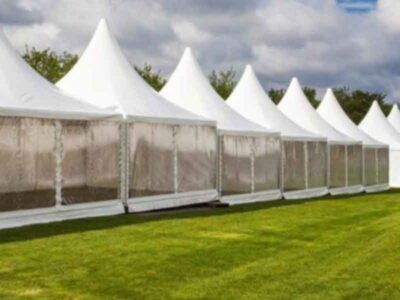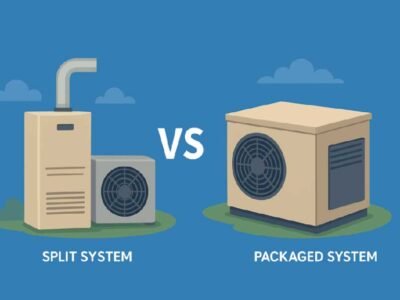Seasonal changes have a profound impact on how well your home’s plumbing system functions. Each shift in temperature, moisture, and air pressure can introduce unique challenges for your pipes, fixtures, and water-based appliances. Ignoring these effects can lead to leaks, bursts, or inefficiencies that may disrupt daily routines.
For homeowners in Snellville, GA, where temperature changes are noticeable throughout the year, understanding how different seasons influence plumbing performance is key to maintaining a reliable and efficient system that continues to operate smoothly regardless of environmental fluctuations or weather extremes.
Winter: The Season of Frozen Pipes and Strained Water Heaters
Winter is often the most demanding time for your plumbing system. As temperatures drop, the water inside pipes can freeze, expand, and potentially cause the pipes to burst. This problem is especially common in unheated spaces such as basements, garages, attics, or exterior walls. A single burst pipe can lead to serious water damage and expensive repairs, which is why preventive measures are essential.
Insulating exposed pipes and sealing openings around windows or doors helps keep cold air out and warmth in. Allowing a slow trickle of water through vulnerable pipes during extremely cold nights can also help prevent freezing.
Your water heater faces similar challenges during this time. Since the incoming water is much colder, the unit has to work harder to maintain consistent temperatures, which increases energy demand and wear. Older systems may struggle under this stress, often leading to fluctuating water temperatures or breakdowns. This is why homeowners usually consider water heater replacement in Snellville, GA, as the area itself is prone to frequent temperature shifts that put significant strain on older heaters.
Sometimes, replacing the water heater altogether is a better long-term solution, especially when the system has aged or struggles to keep up with seasonal demands.
A new unit not only ensures consistent hot water supply but also operates more efficiently, reducing energy strain and minimizing the risk of unexpected failures during the coldest months.
Spring: Heavy Rain and Drainage Challenges
When winter ends and spring begins, melting snow and heavy rains can overwhelm your home’s drainage system. Clogged gutters, downspouts, or yard drains can cause water to pool around your foundation, increasing the risk of leaks and basement flooding.
To avoid these issues, it’s important to clean out gutters and inspect outdoor drainage paths early in the season. Ensuring that downspouts direct water away from the home prevents moisture from seeping into vulnerable areas.
Tree roots also become more active in the spring, seeking moisture in the ground. Unfortunately, they can grow into underground pipes, causing clogs or even breaks in your sewer line.
Summer: Increased Water Demand and Heat Expansion
The summer season brings more outdoor activities, watering needs, and higher overall water usage. This constant demand can put additional pressure on your plumbing system, especially if you have older pipes or fixtures. Increased water pressure from sprinkler systems or garden hoses can expose weak joints, leading to small leaks that may go unnoticed.
Heat also causes materials like PVC and metal to expand. While this is a natural process, repeated expansion and contraction cycles can weaken seals over time. Inspecting visible pipes, especially around outdoor faucets and irrigation systems, helps catch these problems before they worsen.
Autumn: Preparing for the Cold Ahead
Autumn serves as the perfect transition period for getting your plumbing system ready for winter’s challenges. As temperatures begin to drop, now is the time to inspect pipes, water heaters, and outdoor plumbing for any early signs of damage.
Start by disconnecting garden hoses and shutting off outdoor water valves. Leaving hoses attached traps water inside the line, which can freeze and cause cracks when cold weather arrives. Inspect the insulation around exposed pipes and replace any that appear worn or missing.
Your water heater also deserves attention during the fall. Flushing the tank and checking the pressure relief valve can prevent sediment buildup and ensure safe operation during the months when it will work hardest. This proactive step reduces the chance of system stress or failure once winter sets in.
The Year-Round Impact of Temperature and Pressure Changes
Even small temperature variations can influence water pressure and flow within your plumbing system. As water heats or cools, it expands and contracts, subtly affecting pipes and joints. Over time, these shifts can weaken seals or fittings, leading to slow leaks that go unnoticed until significant damage occurs.
Regular monitoring of your water pressure can prevent such issues. A consistent reading that stays within a safe range helps protect appliances and ensures smooth operation across all plumbing fixtures. Pressure that is too high may cause stress on pipes, while pressure that is too low can indicate an obstruction or hidden leak.
The Importance of Preventive Plumbing Maintenance
No matter the season, preventive maintenance remains the most effective way to protect your plumbing system. Scheduling professional inspections once or twice a year allows experts to identify corrosion, leaks, or inefficiencies early on. Tasks like cleaning drains, testing shut-off valves, and checking for loose fittings can make a substantial difference in preventing unexpected breakdowns.
Paying attention to small warning signs is equally important. Gurgling drains, slow water flow, or unusual odors may indicate developing problems that worsen with seasonal changes. Acting quickly when these signs appear prevents further complications.
Adapting to the Seasons with Smart Care
Every season presents its own plumbing challenges, but awareness and preparation are the keys to keeping your system in top condition. Winter demands protection against freezing, spring requires attention to drainage, summer calls for monitoring outdoor plumbing, and autumn focuses on preparing for cold weather.
By staying proactive, homeowners can prevent most plumbing emergencies before they start. Regular care, timely repairs, and professional inspections ensure that your pipes, fixtures, and appliances remain reliable in every season.
Understanding how temperature shifts, moisture changes, and usage patterns affect your plumbing gives you the power to act before problems arise. When you treat seasonal maintenance as part of your household routine, you can enjoy peace of mind knowing that your plumbing system will continue to perform efficiently year after year.












